Dakota Access Pipe Line: A portrait of nations in protest over their right to drinking water.
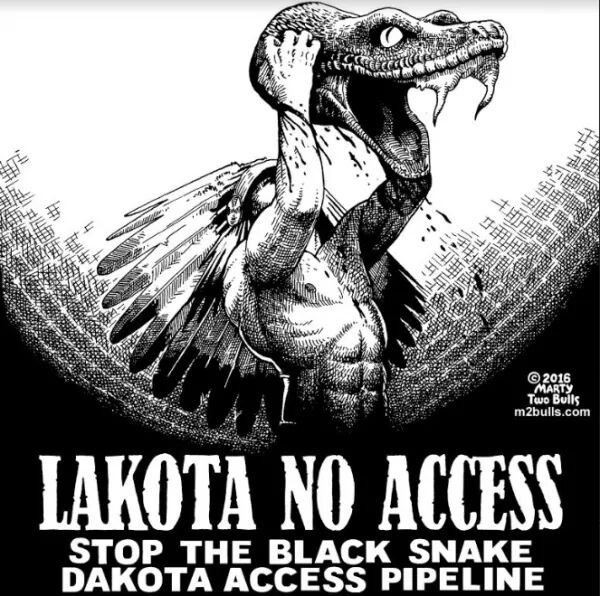
If your Facebook news feed sucks and you trust the mainstream media to give you unfiltered access to what's going on in the world you're gonna have a bad day. In the last two weeks over four thousand native people from seven tribes have gathered to protest the Dakota Access Pipeline. The campsite is known as the seven councils is seen below.
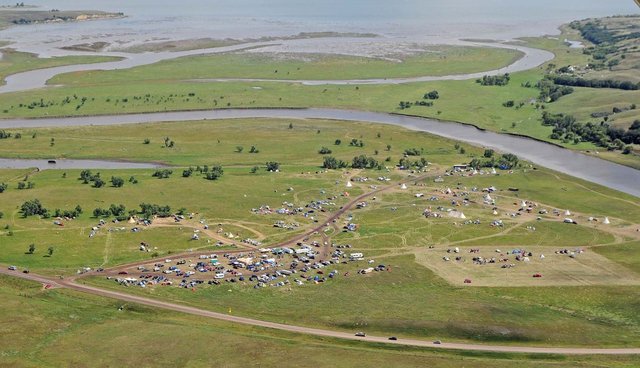
They have marched together to protest the construction of a massive oil pipeline over the river that is the main water supply to the native population.
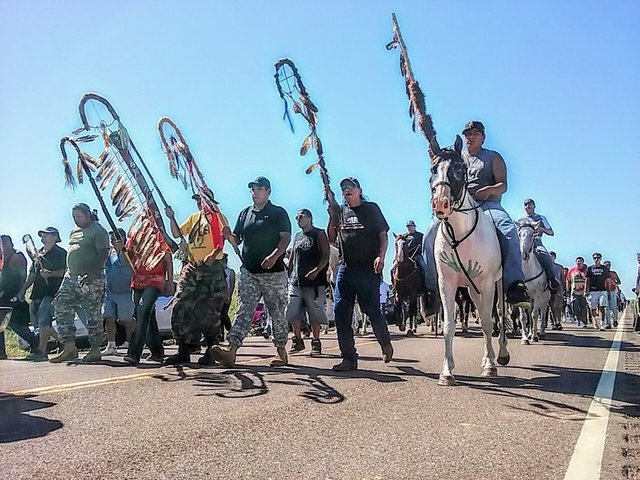
The local sheriffs have created a roadblock.
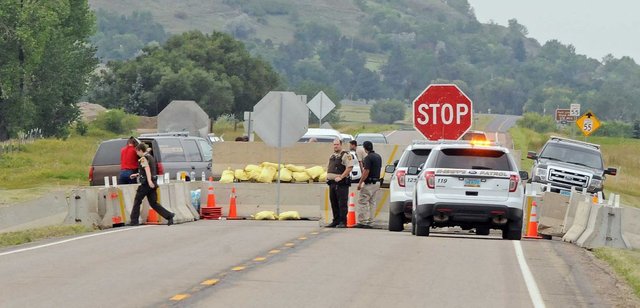
Worse yet, and quite ironically, the local authorities have also cut off access to drinking water as a way to disperse the crowd and stop the protest.
Here's what's at stake for the first nations people. Most of the first nations councils have land that abuts the Missouri River, which is the exact river the Dakota Access Pipeline plans to cross.
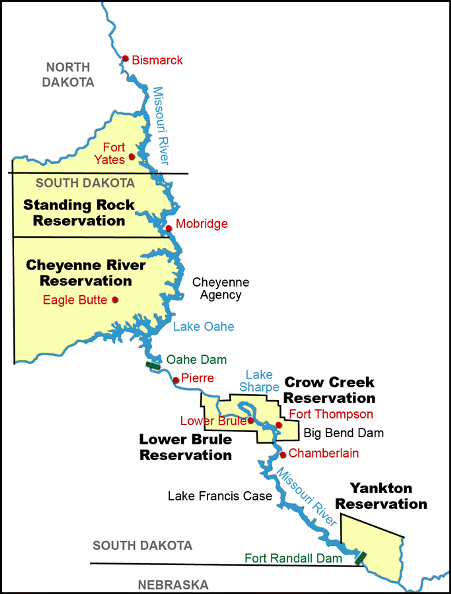
The concern is that the Dakota Access pipeline will leak into the River and stop everyone that depends on it for drinking water from accessing potable water. And of course pipelines leak. In March 2013, homeowners in Mayflower, Arkansas, experienced a leaky pipeline where crude flowed into their basements, over their lawns and onto their streets. In 2010 a single pipeline spill burst 1,000,000 gallons of bitumen crude oil into the Kalamzoo River in Michigan. The cleanup cost over one billion dollars and contaminated the river. In January of 2015 over 50,000 gallons of Bakken crude oil spilled into the Yellowstone River in Montana.
The concern for industry stems from the recent discovery/exploration of large oil reserves in the Dakotas. The Pipeline is a US$3.78-billion infrastructure project designed to transport up to 570,000 barrels of crude oil per day, which wholesales for about $22M/day (at $40/barrel) or probably worth $7B/year. Obviously the stakes are high and the corporations, oil companies, and their subsidiaries (government) will do whatever they can to bypass the concerns of the locals and get their oil to money machine up and running.
Don't let the media hide this story! Help it grow. Share it, and make sure that our native friends don't get screwed.
nice post
https://steemit.com/steemit/@manbeak/no-dapl-picture
Upvoted and following
I live in South Dakota . The local news has been covering this . This issue is a complicated one. On one hand there is no ether and envirmentally friendly way to transport oil than through a pipeline. On the other hand cost of building the pipeline takes a front seat to safety and clean water. I deffinately support the tribes right to keep this out of there territory a least until there concerns are met.